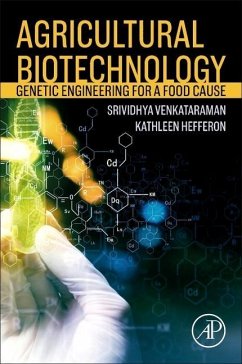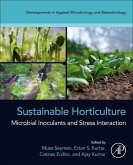Agricultural biotechnology and the production of GM crops have been controversial despite being practiced in both developed and developing countries, the major reason being their potential negative impact on human / animal health or environment. Also prevalent is the view that it is simply unethical to engineer different forms of life in the laboratory, especially when it comes to consuming food generated through genetic engineering. GM crops have been introduced into the agricultural landscape more than 2 decades ago which has allowed us to study their effects on economy, health and the environment. Agricultural Biotechnology: Genetic Engineering for a Food Cause is a compendium of information, practices, observations and discernible insights on agriculture, biotechnology and sustainable development. The book begins by descriptions of genetic engineering practices and strategies for producing GM crops, their importance in the food chain and advantages of GM crops over non-modified crops. Followed by chapters on the strategic genetic applications and the use of synthetics microbiology and microbial symbiosis, Agricultural Biotechnology: Genetic Engineering concludes with an insight of the Future of microbiotechnology in agricultural practices. Agricultural Biotechnology: Genetic Engineering for a Food Cause fills a gap by summarizing the available literature in a wide variety of topics under one single volume, being accessible to audiences in academic, government and industry spaces.
Hinweis: Dieser Artikel kann nur an eine deutsche Lieferadresse ausgeliefert werden.
Hinweis: Dieser Artikel kann nur an eine deutsche Lieferadresse ausgeliefert werden.








